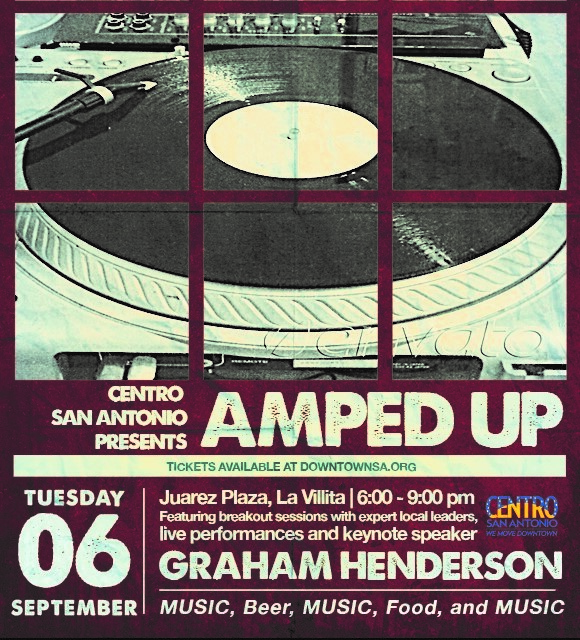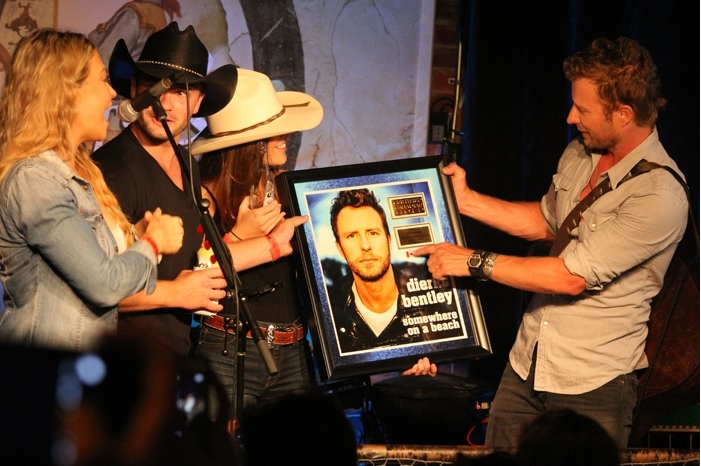I’m Graham Henderson. I’m from Music Canada, and it’s my honour to thank the Minister and offer some brief thoughts on her remarks. I guess if I had been asked to do a formal review, I could do it in one word: “wow.” Minister Joly, you managed in a very short period of time to demonstrate your grasp of the importance of the cultural industries to our economy. I won’t go into all of the economic details – we are all familiar with them: for example the fact that culture represents 3% of our GDP. This amounts to a 55 billion dollar contribution to our nation’s GDP each year. But beyond this, thanks to pioneering work being done by Music Canada, we now understand that culture’s contribution to our society is so much more complex. Music for example has an enormous impact on the quality of life in our communities. And, as you recognize, government contributions to this sector represent an investment, and not just a financial outlay – there is an enormous return on that investment. Additionally, as you have observed, culture is a key component of “Brand Canada.” In many respects culture is a gift to the people of Canada, and we are not doing enough to incorporate it into Brand Canada, and celebrate it around the world.
I was also very, very pleased to hear your call for more investment from business in the cultural sector. Also I was pleased by your references to and emphasis on the humanities. The humanities underpin everything that we do, and actually, are under threat here and around the world. As you probably know, Republican governors across the United States are calling for the removal of state funding for students seeking an education in the humanities. Here in Canada the last Government financially supported an excellent STEM initiative called “Let’s Talk Science.” Well, in response to the comment that you made about the importance of the humanities, perhaps your government could introduce a program called “Let’s Talk Humanities;” a program geared to interest our young people in an education in that sector and turn STEM into STEAM!
This year is a good year for music. It’s the first year in almost two decades that there has been an uptick in our revenue picture. Global growth is up three percent. Music consumption is exploding, particularly through the streaming services. This is great news and it reflects an industry that is adapting to the rapid transformation of technology. However, it requires us to continue to work together to ensure one critical result: appropriate remuneration of artists for their work.
I think everyone in this room looks forward to working with you in the coming months on the legislative review of the Copyright Act. This must not be a pro forma review. This needs to be meaningful. We have fourteen years of experience to guide us.
Now, in concluding, I am going to do something I always try to do whenever I’m speaking in public! I try to work in some of the ideas of my favourite poet, Percy Bysshe Shelley, which I’m going to do now. In this case, given some of the things the Minister has said, I think it’s exceedingly appropriate.

Sketch of Shelley drawn by Edward Ellerker Williams. 1821-22. In my view the only extant image that captures the man.
Shelley wrote a defence of creativity almost two hundred years ago to which he gave the title “A Defence of Poetry.” When Shelley wrote this, he was responding to a pointed attack on poetry itself, but I like think of the essay as a defense of creativity in general. In it, Shelley lists some of the important contributions of science and economics, but he then goes on to say,
“…it exceeds all imagination to conceive what would have been the moral condition of the world if neither Dante, Petrarch, Boccaccio, Chaucer, Shakespeare, Calderon, Lord Bacon, nor Milton, had ever existed; if Raphael and Michael Angelo had never been born.”
And this feeds in directly to his conclusions. Shelley writes:
“Poets are the hierophants of an unapprehended inspiration; the mirrors of the gigantic shadows which futurity casts upon the present; the words which express what they understand not; the trumpets which sing to battle, and feel not what they inspire; the influence which is moved not, but moves. Poets are the unacknowledged legislators of the world.”
When Shelley speaks of “poets,” I believe here he means creators; and when he says they are legislators, he doesn’t mean they’re lawyers, he doesn’t mean they’re necessarily politicians. What I think he is saying is that creators predict our future, they underpin our future, and they create a framework for our future. And this is why I am excited about what Minister Joly has said. The Minister intuitively understands this. The Minister sees that creators are deserving of our respect and protection. I am so glad to see that we actually have with us an elected legislator who sees that it is our poets who are the true legislators of the world.
Thank you.









 The Rambler is a column by Graham Henderson, President of Music Canada. Graham writes from time to time about developments in the music industry, new trends or just about music! Let’s face it, Graham has been around for a long time and has a lot to ramble on about.
The Rambler is a column by Graham Henderson, President of Music Canada. Graham writes from time to time about developments in the music industry, new trends or just about music! Let’s face it, Graham has been around for a long time and has a lot to ramble on about.

Music Canada